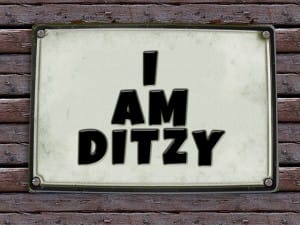Do you label people? How does that work for you?
How do you think labeling ourselves as introvert or extrovert affects us?
I’ve grown up with “label with caution.” Even when I facilitate a workshop, I ask people to place a tent card with their name on it, so I don’t acknowledge them with a, “Hey you” label. Oh dear, but aren’t names labels? If they are, is there anything wrong with that kind of label?
Labels serve a purpose but are they any good? #introverts
As I get older and experience more of life, including grandchildren, it seems that labels are often unnecessary, and can otherwise be a deterrent for some of us. There is some psychological research pointing to negative labeling. I’ll be you know what the general conclusion is?
Negative labeling sticks. Once a child abuser, a person can have that label be with then through their life.
But what of those people falsely accused? Do they stand a chance of being accepted again like a normal person? Can they get their life back? There’s mixed evidence.
Life is already complex without muddying up our way with labels that don’t serve a positive purpose.
Inspired by some quotations I came across, here’s a take on labels, their purpose, and their value.
Labels are for filing. Labels are for clothing. Labels are not for people. Martina Navratilova
[Tweet “Labels are for filing. Labels are for clothing. Labels are not for people. #quote Martina Navratilova”]
A problem with labeling people is that it often IS how we file them. You hear introvert, and you might think, “shy” or “quiet.” But such labels can be wrong, and misunderstood. Or you might hear extrovert and think, “talks too much,” or “loud mouthed,” and again we find it’s not always right, or the situation.
Labels are often helpful to make sure people are on the same wavelength in particular in conversation and listening. But the fact is we each have different interpretations of words, even the simplest of words.
Maybe we’re talking about trees. The trees in my backyard that over time have either been pruned by mother nature or by us needing to clean up after her.
But what kind of tree was in your mind? An tall oak tree, a blooming cherry blossom or a Christmas tree. So even labeling of one of the most common day items gets filed differently.
Man is the only critter who feels the need to label things as flowers or weeds. Anonymous
[Tweet “Man is the only critter who feels the need to label things as flowers or weeds. #quote Anonymous”]
Often I think about our last dog, Chanel, and her love of playing with balls. In particular, tennis balls. Once she saw one her tail would wag, and she would start jumping with joy.
Yes, she knew the word “ball,” but I sincerely doubt that label made her jump.
What I think is “ball” brought forward the feeling of joy in her. She didn’t judge the ball one way or another. Instead, the ball was a trigger for her. In moments, one of her most favorite past times would have her in a state of joy. And we would soon be batting that tennis ball with a racquet to get it as far as we safely could for her to run to it.
When we use the label introvert or extrovert, if it’s referenced to help us understand and work through our differences easier, that’s a good situation. If it’s more of a way to have one of us be better than another, that doesn’t work for me.
 I don’t like labels. I think they conceal more than they reveal, sort of like a bikini. Arlen Specter
I don’t like labels. I think they conceal more than they reveal, sort of like a bikini. Arlen Specter
Being labeled an introvert or extrovert reveals some part but not all of who we are, like a bikini.
[Tweet “Being labeled an introvert or extrovert reveals some part but not all of who we are, like a bikini.”]
In business and personal/social life while communications and working together can improve knowing this personality difference, carrying the introvert/extrovert label too far can be debilitating.
I think of if I had learned I was an introvert as I left a short teaching career to enter into sales, then my sales and sales management experience would have been empty. Introverts don’t go into sales, or do they?
If we let labels define who we are, they are apt to limit us.
I’ve never concerned myself with the labels people want to put on you. What matters to me is my own estimation. Jean Dujardin
Many introverts attributes are me, including, think things through, preferring solitude and having a small circle of friends. But I am not at all quiet or shy. Because of my life experiences and other parts of the kaleidoscopic me, there is more to that.
I don’t look in the mirror and say, “You, who are you?”
When I see my reflection, I know, “Yes, that’s me.”
Whatever meaning over time I’ve given to who I am is who I see. For sure this self-perception changes with life experiences and time, but the label introvert with any stigma as many might use it, it’s not me.
My point is not to brag and say I’m the best.
It’s to say, I know who I am. Label or not.
By the way, I like my name as it is too. Name labels, rather have my name than me called, “Hey you.”
A blog post, Life Without Labels, is also a must read. Hunter Nuttall has some points worth considering.
What purpose do you give to labels?
Originally posted August 2008.


We all subconsiously label people by our first impressions. But when it comes to introvert/extrovert I think a label is not the end of the world. The vast majority of people in the world are a combination. I’m approximately 90 procent extrovert and hence a little bit introvert. So if people find the label introvert negative it reflects on them as well.:-)
Sometimes labelling people serves a very useful purpose. For instance when you are dealing with someone that has some kiind of mental illness. It facilitates a lot to know what their problem is and adjust your expectations accordingly.
When it comes to people falsely being accused of something in the media unfortunately there is very little we can do about that. It has always been like that and always will be because it sells newspapers.
I think labels can be both good and bad. Identifying with a particular label (e.g. I am an artist) can produce an attitude of can-do. The danger comes in when we use the label to limit ourselves, believe labels others have put on us, or don’t look past the label to see the fullness of others.
I have rebelled against using labels for as long as I can remember. The quotation I usually reference is “Labels are for jars not people”. False assumptions are often made based on labels it’s really the cause of so many problems in our world today. I rarely even use the term Introvert because many have the idea that tells them right off everything they need to know about me.
In fact I was once in a position where a supervisor insisted I tell a story about my past illustrating how being an introvert affected my life (the only reason she knew I was an Introvert was because we had to take that stupid Myers Briggs assessment). Anyway, I made up a story. From beginning to end it was a complete lie. She was thrilled and said it helped her to know the r-e-a-l me.
We cannot help but label as it helps us to categorise others. I feel that people are far more complex and we should not be too quick to stick a label on them. This can be likened to keeping people in a box; you feel uncomfortable with the new them, perhaps this part of them always existed but was supressed.
I think labelling is something that people do a lot more than they admit. It’s really a simple way of conceptualizing a first impression. And it’s often never changed.
Patricia — labels can be bad, as you point out. But if you are trying to develop a personal brand they can serve a purpose. A winner of the Academy Award will forever have the prefix, i.e., “Academy award winner Meryl Streep,” or “Nobel prize winner William C. Campbell.” A label can also confer expertise and authority.
Labeling is so commonplace. Even those of us who rail against it, seem to subconsciously do it. I think it’s our brain’s filing system. I remember in the 80’s I was asked quite frequently, “are you a woman’s libber?” and my stock answer was “When it’s convenient.” Maybe that holds true for most labels…a matter of convenience:)
Labeling can often get one into trouble. Let’s say someone is bothering you. Instead of labeling the person annoying, figure out what is going on that is causing the annoyance. The person may still be annoying, but at least you have figured what’s inside of you that’s causing the irritation. In your example with your dog, as you point out, it’s not the word ‘ball’ that was important. It was the associated joyous feeling.
Humans are pattern seeking creatures and we give things names as symbols (like your tree example) in order to identify them. This is not the same as labels which are used to stigmatize or compare people to one another which is a damaging illusion. For example, he’s a late bloomer (obviously compared to others) or she is gifted (aren’t we all?) I discuss this extensively in my first book. Aside from being a marketing tool, labels such as these cause deep rooted misunderstandings and misguided beliefs that contribute to separation in our world.